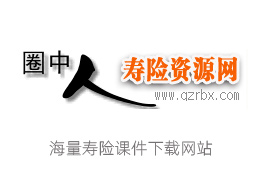|
【资料简介】

春节是中国最隆重最热闹的一個传统节日,就像西方的圣诞节。
Chinese new year is the most important festival for Chinese people,
just like Christmas in the West.
春节在农历的一月一日,通常比太阳历的一月一日晚一個多月。
Chinese new year is on 1st lunar January, often later than the Gregorian
calendar about one month .
扫尘 Sweeping the Dust
“尘”于“陈”同音(“陈”在汉语中的意思是“旧”的和“過去的”)
“Dust” is homophonic with “chen”in Chinese, which means old and past.
在春节前扫尘是指扫除过去一年的厄运。
“Sweeping the dust” before the Spring Festival means a thorough cleaning
of houses to sweep away bad luck in the past year.
守岁 Staying Up Late on New Year’s Eve
守岁的传统来自一个有趣的民间故事。在中国古代有一个叫作“年”的怪兽。在春节前的晚上,“年”会从地洞里出来吃人。
The tradition of staying up late on New Year’s Eve originated from an interesting folktale. In ancient China, there lived a
monster named Year. On New Year’s Eve, it always went out from its burrow to devour people.
春节的传统美食 Traditional New Year Foods
鱼 fish
“鱼”和“富余”的“余”同音。春节吃鱼代表“年年有余”的美好愿望。
“Fish” is homophonic with “abundance”in Chinese. It symbolizes a wish for abundance in every year.
饺子 dumpling
饺子的形状像中国古代的金元宝,因此人们吃饺子以此来希望财富到来。
The shape of dumpling is like gold ingot from ancient China. So people eat
dumplings in the Spring Festival is wish for money and treasure in
拜年 New Year’s Visit
拜年是指新年的第一天每個人都會穿上他們最漂亮的衣服,礼节性地拜访亲戚和朋友,祝愿他们新的一年中好运.
On the first day of the Chinese new year, everybody puts on their best
clothes and pays ceremonial calls on their relatives and friends, wishing them
all the luck in the coming year.
放鞭炮 Setting
off
Firecrackers
贴春联 Pasting Spring Couplets
贴“福”字 Pasting Chinese character “Fu”
在墙上和门上贴“福”字是中国人表达对美好生活渴望的普遍习俗. ...........

|